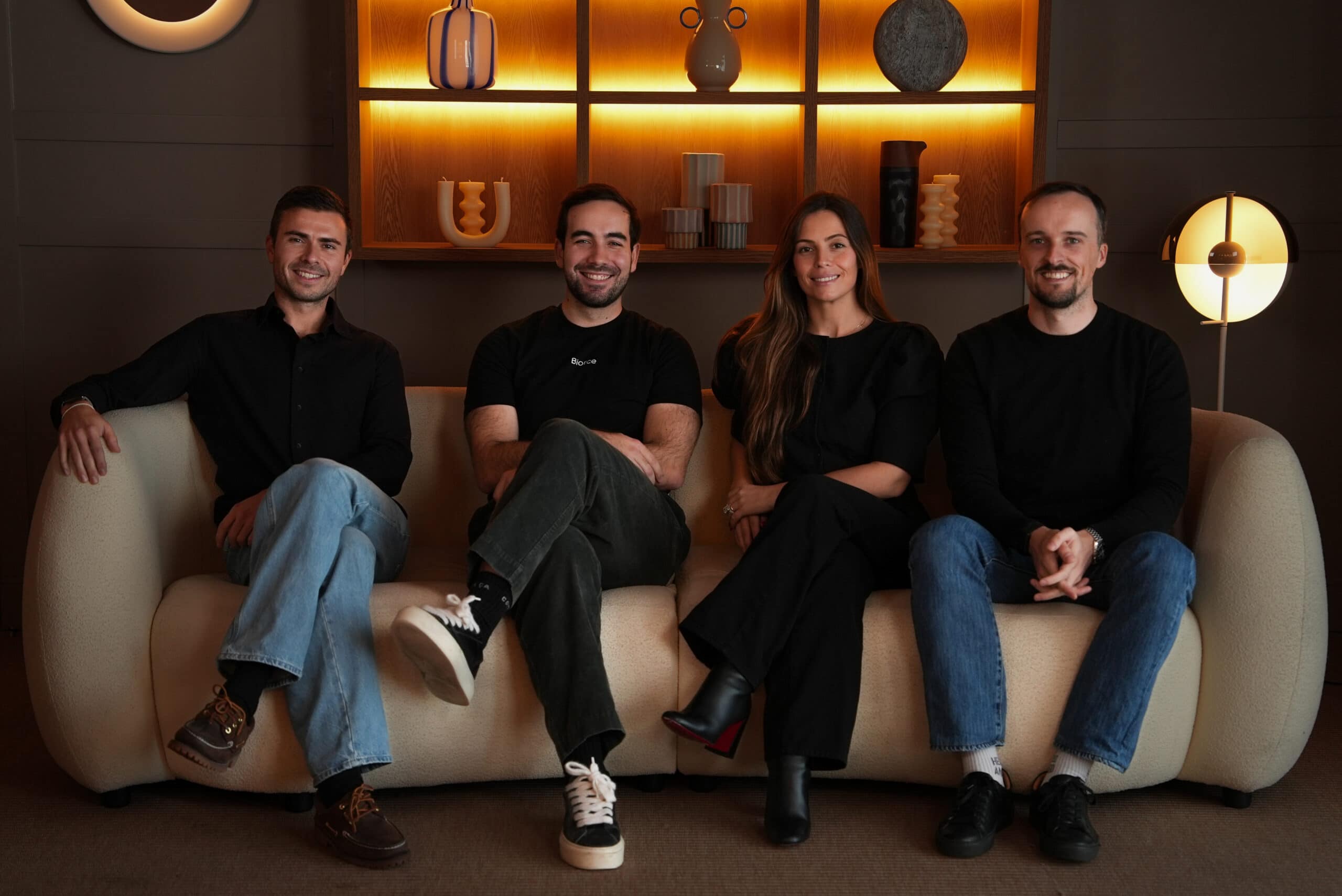The European Union sees the digital transformation of healthcare as a top priority for the coming years, and here we take a look at the challenges that are applicable to both Spain and the world.
The issue of democratizing healthcare when it comes to digital transformation involves a few key risks that are currently being addressed by various entities.
These issues deal with the fundamental rights of patients in accessing information, in receiving medical care, and having a harmonized communication channel with healthcare system stakeholders.
Fundamental rights need to be preserved in healthcare digital transformation
Alain Coheur, director of European and International Affairs at the National Union of Socialist Mutual Health Funds of Belgium, was quoted in SaluDigital last October as believing that it important to “conserve our national health services,” with regards to the role of digital technology as an actor that activates fundamental rights such as “the right to information” and “the right to medical care” as key systems of social welfare.
The ecosystem between provider networks and patients needs to function with universal standards.

Dolmarie Mendez
This right to information is part of an overall theme of democratizing digital healthcare. Puerto Rico-based Abartys Health Co-Founder and CEO Dolmarie Mendez tells Novobrief that the biggest challenge is “having a harmonized communication channel between healthcare system stakeholders and health data access and portability to the patient.”
She adds that “the common demoninator and the global need” lies in “giving access to clinical data and solutions for population management in a harmonized and standardized language, in a cloud based environment to entities for research, to providers to treat patients, to health carriers to manage populations, and to patients for self management, education and prevention purposes.”
Abartys Health is solving the global healthcare crisis with smarter, faster care achieved by use of a unique, centralized data hub that allows medical record portability and universal patient identification.
The threat to healthcare by digital transformation
Another key issue reported by SaluDigital is the threat of the digital divide that exists in society, referring to the unequal access to digital health that can be in the population depending on where you live.

Alain Coheur
Coheur warns of the danger that can be assumed that patients are transferred “too much responsibility” to not be able to face these all that contributes to their state of health.
On this aspect, he has warned that digitalization could favor a greater role of insurance companies, in the sense that they can personalize the risk of people to certain diseases through predictive medicine.
“Do we want equal access for all European citizens or are we going to follow the path taken by the United States where insurance dominates the market?” said Coheur via SaluDigital.
Democratizing healthcare in the face of digital transformation
The European Economic and Social Committee (EESC) also points out that the EU should address the protection of personal data related to health.
The EESC “endorses the European Commission’s efforts to make eHealth a high priority within the Digital Agenda,” and “notes that people seeking information, patients and healthcare professionals have repeatedly stressed the need for full, accurate and up-to-date information on medicinal products and for a single digital market.”
The education process to understand how valuable the health and clinical data is to treat the patient based on that patient’s uniqueness and characteristics is one of the top global challenges.
Abartys Health is working towards democratizing this health data access that involves “clinical data portability from a centralized cloud based environment with global access to clinical entities worldwide like: hospitals, clinics, emergency rooms, private practice, pharmaceuticals, medical devices manufacturers, etc.”
“With our technology which applies ISO (healthcare standardized languages and formats), it is tangible to provide a global centralized hub, where health and clinical data from patients is available anytime,” said Mendez.
The EESC also “points out that having all this on a single portal means there is a trustworthy and in many ways easily accessible source of officially authorised information that meets disability-access criteria. This means that patients and healthcare professionals can compare any information available elsewhere with the basic authorised information.”
The mindset has to change…
According to Mendez, who is also a contributor to Entrepreneur, “The education process to understand how valuable the health and clinical data is to treat the patient based on that patient’s uniqueness and characteristics is one of the top global challenges. If the industry keeps managing the data collection only as a ‘trash can’ because of the lack of a universal technology to manage micro and macro populations, it’s almost impossible.
“The mindset has to change, and the ecosystem between provider networks and patients needs to function with universal standards, language and tangible solutions, that can be applied between the stakeholders responsible to provide healthcare services with quality.
“In order to do that we need an ecosystem capable of managing the standard languages required by the industry in general and to make that data available accordingly to every stakeholders’ needs including insurance, providers, patients, governments, etc. That’s the Abartys Health Value Proposition.”
Spain’s Technology and Health Foundation
Adressing these issues with regards to Spain is La Fundación Tecnología y Salud, which maintains a close collaboration and works permanently with: health authorities, agencies and health technology assessment services, health managers, professional associations, patient associations and the general population to encourage the creation of innovative, safe, reliable and effective products and services and add value to the system and society..
It aims to disseminate the value and social significance of the Health Technology Sector through the integration and collaboration of the agents involved in the Health System, facilitate patient access to this technology, promote the development of new technologies, promote their proper use, and ultimately, help to optimize and improve the quality of care in the country.
In addition, the Fundación aims to facilitate patients to benefit from the use of technology and have access and knowledge about it, to help them in the responsible management of their own health.
Digital health startup success stories in Spain
According to the Healthcare Information and Management Systems Society (HIMSS) in 2015, “The level of EMR [Electronic Medical Record] integration in Spain has made the country one of the most digitally mature healthcare markets in Europe.”
At Novobrief, we have reported on many Spanish digital health startups that are leading this industry.
For example, Barcelona-based Biwel is paving the way for Spanish companies working abroad to have unified occupational health plans by launching its first program for Encofrados Alsina (Alsina Formwork Solutions).
The Catalan startup recently launched a global occupational health plan for Spanish company Encofrados Alsina’s nearly 700 workers in more than 17 international subsidiaries (70% of the staff) and more than 10 delegations in Spain (30% of the staff).
Read More: Biwel paves way for Spanish companies working abroad to have unified health plans
In May, Elma Care launched its next generation eHealth consultation app that incorporates AI with a €1 million investment from Antai Venture Builder.
The Elma Care app, which is available on iOS and Android, offers users the possibility of receiving a diagnosis via chat, phone call, or video call.
“Sixty percent of Spaniards have stopped going to the doctor at some point due to a lack of time, travelling, waiting to be seen, etc.,” said Elma Care CEO and Co-Founder Miguel Ángel Antón, in a statement to the press.
Mentioning that these situations lead many patients to self-medicate, the CEO added, “If these users had a solution in the palm of their hand, they could have had a professional diagnosis without the discomfort but with all the guarantees.”
Read More: Elma Care launches eHealth consultation app with €1M injector boost from Antai
In February, MediQuo, Spain’s 24-hour, 7-day-a-week medical chat application, which works just like WhatsApp, broke into the market to revolutionize the healthtech sector with a financing round of €3 million.
With MediQuo, patients can contact the doctors of different specialties such as pediatricians, gynecologists, cardiologists, psychologists, nutritionists, sexologists and personal trainers, among others, and then haver an answer in less than two minutes.
The Spanish startup wants to bring medicine to everyone while helping society to have an orientation or second medical option on their health problems.
Read More: Spain’s WhatsApp for healthcare MediQuo raises €3M
Earlier this year, the Kenko Health Startup Accelerator launched its first Digital Health edition that focused on startups working on web-platforms, mHealth, apps, big data and analytics, telemedicine, and remote monitoring.
This included startups working on:
- Therapeutic adherence
- Diagnosis
- Control of treatment
- Prevention
- mHealth & Apps
- Web-platforms
- Big data & analytics
- Telemedicine
- Remote monitoring
Read More: Kenko Health Startup Accelerator launches 1st edition in Barcelona







